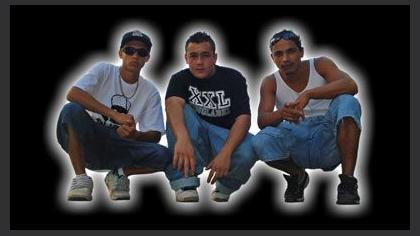 C4 - Facção Ideológica
C4 - Facção Ideológica
C4 - Facção Ideológica: Defying Norms and Sparking Controversy
Emerging from the turbulent streets of São Paulo, Brazil, C4 - Facção Ideológica rose as a formidable force in the underground rap scene. Known for their raw and politically charged lyrics, the band has faced numerous challenges and controversies throughout their illustrious career.
Members and Discography:
* DMC Roger: Lyricist and lead vocalist, known for his fiery and thought-provoking rhymes.
* DJ C4: Producer and DJ, responsible for the band's signature blend of hip-hop with hardcore and punk influences.
* D'Bow: Bassist, providing a heavy and rhythmic foundation to the band's sound.
* Pedro D'Paula: Drummer, known for his explosive and aggressive beats.
Their discography boasts a series of acclaimed albums, including:
* "A Bomba" (1998) - Their debut album, which propelled them to national recognition.
* "Facção Ideológica" (2000) - A follow-up that cemented their status as pioneers in the Brazilian hardcore rap movement.
* "Pacto de Sangue" (2003) - A concept album that explored themes of violence, poverty, and social injustice.
Challenges and Controversies:
C4 - Facção Ideológica has never shied away from controversial topics, often challenging the status quo and speaking out against oppression and inequality. Their music has been both praised and criticized for its explicit lyrics and aggressive tone.
* Censorship: The band's album "A Bomba" was banned by the Brazilian government for its incendiary lyrics, which were deemed to incite violence.
* Death Threats: DMC Roger and other band members have received death threats due to their outspoken views and political activism.
* Legal Battles: The band has faced numerous legal challenges, including charges of defamation and inciting violence.
Legacy and Impact:
Despite the challenges they have faced, C4 - Facção Ideológica remains a highly influential band in Brazil and beyond. Their music continues to resonate with marginalized communities and those seeking a voice against oppression.
Their sound has inspired countless other artists and helped to shape the Brazilian hip-hop landscape. Their anthems of resistance and social commentary have made them icons of political dissent and cultural defiance.
Emerging from the turbulent streets of São Paulo, Brazil, C4 - Facção Ideológica rose as a formidable force in the underground rap scene. Known for their raw and politically charged lyrics, the band has faced numerous challenges and controversies throughout their illustrious career.
Members and Discography:
* DMC Roger: Lyricist and lead vocalist, known for his fiery and thought-provoking rhymes.
* DJ C4: Producer and DJ, responsible for the band's signature blend of hip-hop with hardcore and punk influences.
* D'Bow: Bassist, providing a heavy and rhythmic foundation to the band's sound.
* Pedro D'Paula: Drummer, known for his explosive and aggressive beats.
Their discography boasts a series of acclaimed albums, including:
* "A Bomba" (1998) - Their debut album, which propelled them to national recognition.
* "Facção Ideológica" (2000) - A follow-up that cemented their status as pioneers in the Brazilian hardcore rap movement.
* "Pacto de Sangue" (2003) - A concept album that explored themes of violence, poverty, and social injustice.
Challenges and Controversies:
C4 - Facção Ideológica has never shied away from controversial topics, often challenging the status quo and speaking out against oppression and inequality. Their music has been both praised and criticized for its explicit lyrics and aggressive tone.
* Censorship: The band's album "A Bomba" was banned by the Brazilian government for its incendiary lyrics, which were deemed to incite violence.
* Death Threats: DMC Roger and other band members have received death threats due to their outspoken views and political activism.
* Legal Battles: The band has faced numerous legal challenges, including charges of defamation and inciting violence.
Legacy and Impact:
Despite the challenges they have faced, C4 - Facção Ideológica remains a highly influential band in Brazil and beyond. Their music continues to resonate with marginalized communities and those seeking a voice against oppression.
Their sound has inspired countless other artists and helped to shape the Brazilian hip-hop landscape. Their anthems of resistance and social commentary have made them icons of political dissent and cultural defiance.